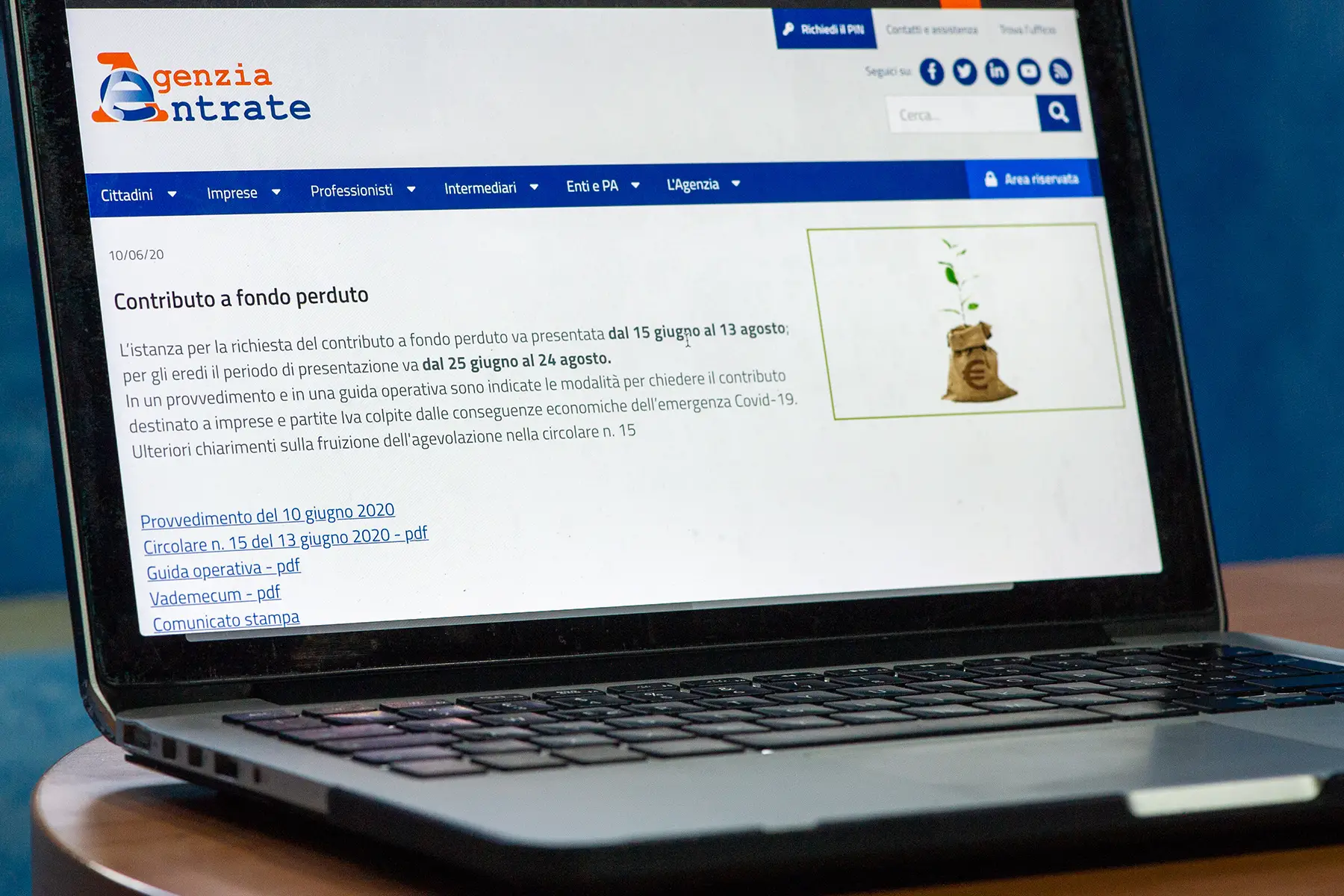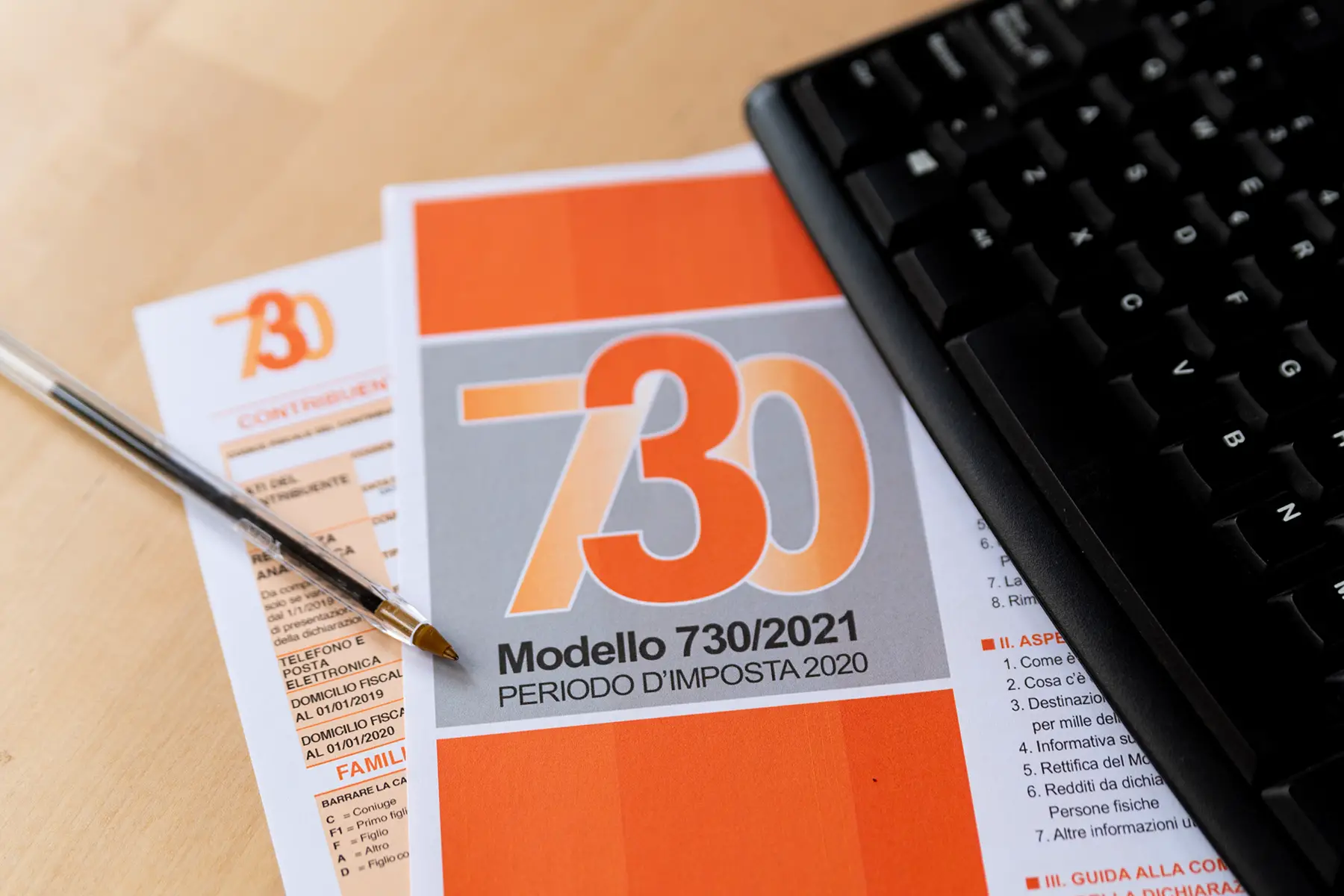If you’re living and working in Italy, you’ll almost always need to pay income tax on your earnings. Fortunately, the country’s tax rates are easy to understand and you can easily take advantage of various allowances and deductions.
Having efficient ways to transfer money between countries, pay taxes, and manage multiple currencies becomes essential when navigating your financial obligations in Italy and elsewhere. Multi currency accounts like Wise offers mid-market exchange rate with low fees, allowing expats to keep costs low when they’re managing their finances.
To pay your income taxes with confidence, keep reading for advice on the following:
Moving2Italy
When relocating to Italy, get expert help from Moving2Italy on taxes, work permits, and setting up a business. They also provide personalized support for immigration, social security, and residence, helping you navigate your new life abroad. For assistance with fiscal and immigration matters, contact Moving2Italy.
Income tax in Italy: overview and latest developments
The Italian Revenue Agency (Agenzia della Entrate) oversees tax in Italy. The agency is part of the Ministry of Economy and Finance (Ministero dell’Economia e delle Finanze – MEF) and has local, regional, and national offices.
The Italian tax year runs in line with the calendar year, from 1 January to 31 December.

Income tax in Italy is called imposta sul reddito delle persone fisiche (IRPEF). It applies to earnings from employment, pensions, and investment dividends.
It is also affects three distinct forms of income:
- Employment income: Workers in Italy pay income tax on their earnings. Tax brackets range from 23% to 43%. Most employees have their levies withheld at source by their employer under a pay as you earn (PAYE) system.
- Self-employed income: Self-employed workers, freelancers, and sole traders can choose between paying tax on their earnings at the same rates as employees or paying tax at a reduced flat rate. They must also file an annual tax return.
- Business income: Businesses in Italy need to pay corporate income tax on their profits. Rates have been falling steadily over the last decade, dropping from 31% in 2013 to the current rate of 24% in 2022.
In addition, you will need to pay income tax on the following:
- Employment benefits
- Savings and investments
- Rental income
Here is an overview of what to expect for each one.
Taxes on employment benefits in Italy
If you are given benefits by your employer (such as health insurance or a company car), you may need to pay tax on them. Benefits are usually taxed on their actual value, which is the amount you’d otherwise have to spend to obtain them. Some company benefits, such as out-of-town travel and relocation allowances, come with specific rules.
Taxes on Italian savings and investments
Italian tax residents pay a wealth tax on financial investments they own outside of Italy. This is based on their value on 31 December each year. The tax rate for investments is 0.2%.
Capital gains tax in Italy is 26%. Since 2023, this also applies to gains made from trading cryptocurrency. The tax rate on cryptocurrency gains is due to rise to 33% on 1 January 2026.
Taxes on rental income
There are two options for taxation on rental income. First, you can pay tax at standard income rates if you’re letting a property as an individual rather than a business. If you do this, you can deduct 5% to cover expenses incurred leasing the property.
Alternatively, you can choose the flat-rate (cedolare secca) scheme. This allows landlords to pay a flat tax rate of 21% on their rental income (26% if letting multiple properties, or 10% for certain long-term rentals with regulated rent agreements), but no deductions are allowed.
Latest news about income taxes in 2026
The income tax bands in Italy remain the same for 2026 as they were for 2025. However, the tax rate for the middle income band (€28,001–50,000) has been reduced from 35% to 33%.
The tax rate on employment productivity and performance bonuses up to €5,000 has been reduced from 5% to 1%.
The flat tax regime for high-net-worth expats relocating to Italy has also been increased. Under this regime, those eligible could pay a flat sum instead of being taxed under the standard system. This sum increased from €100,000 to €200,000 in 2025, and increase again to €300,000 on 1 January 2026.
The tax rate payable on gains rises from 26% to 33% from 1 January 2026.
Tax rates: how much tax will I pay in Italy in 2026?
2026 (for 2025 income)
| Italian income tax bands | Italian tax rate |
| Up to €28,000 | 23% |
| €28,001–50,000 | 33% |
| €50,001 and above | 43% |
2025 (for 2024 income)
| Italian income tax bands | Italian tax rate |
| Up to €28,000 | 23% |
| €28,001–50,000 | 35% |
| €55,001 and above | 43% |
People living in Italy also need to pay municipal and regional taxes. These are also deducted from your income. Municipal taxes are usually less than 1%, while regional taxes can vary from around 0.7–3.3%, depending on where you live.
Who pays income tax in Italy?
Your income tax liability depends on how much time you spend in Italy and whether you’re considered a resident for levying purposes.
Expath
Expath provides expert tax consultancy and accounting services for expats living and working in Italy. They help clients navigate the Italian tax system in four languages, from tax relief to understanding regimes. If you’re looking for a reliable and stress-free tax solution, contact Expath today.
If you live in the country for less than 183 days a year, you’ll only need to pay Italian income tax on money earned in Italy. However, those who live in the country for more than 183 days a year are considered permanent residents for tax purposes and must pay income tax on their worldwide earnings.
Fortunately, the country has double taxation agreements (convenzioni per evitare le doppie imposizioni) in place with many countries. These stop workers being taxed twice on the same income.
Who needs to file a tax return in Italy?
Residents and non-residents who earn money in Italy must file annual tax returns. However, there are a few exceptions:
- You won’t need to file a return if you exclusively receive your income from a single employer, and it is taxed at source (deducted from your take-home pay each month).
- People who earn less than €8,000 a year from employment or €7,500 from retirement income don’t need to submit a return.
Income tax in Italy for the self-employed
Freelancers in Italy must pay income tax on their earnings. If you own a limited liability company, however, you’ll need to pay corporate tax.
There are two tax options for self-employed workers:
- Pay tax at the same rates as employees
- Use the flat-rate tax system (regime forfettario)
Using the flat-rate tax system allows people earning up to €85,000 to pay a tax rate of 5% for the first five years they run their business and 15% thereafter. This will enable you to cut your tax bill and save time compared to filing a full return.
On the down side, you won’t be able to offset company expenses or be eligible for the regime if you earned €30,000 or more as an employee the year before you started your business.
Self-employed professionals and freelancers working with international clients face the additional challenge of receiving payments from abroad.
Multi-currency accounts like Wise provide local account details in multiple currencies, allowing you to receive payments conveniently while avoiding excessive currency conversion costs. This can be particularly valuable when managing income from multiple countries while filing taxes in Italy.
Income tax in Italy for foreigners
Workers relocating to Italy scheme
Some new residents in Italy can benefit from the workers relocating to Italy scheme. This allows them a temporary discount on their taxes.

Under the old rules, expats living in Italy were required to declare 30% of their earnings for tax purposes for their first five years in the country.
However, due to regulations introduced in 2024, most workers using the scheme must now declare 50% of their income. If the worker has a dependent child under the age of 18, this reduces to 40%. A maximum salary cap of €600,000 has also been introduced.
Other changes include requiring the applicant to retain Italian residency for at least four years (rather than two) and taking on a job with a ‘high level of specialization.’
For advice and help handling the new developments of Italy’s impatriate scheme (regime impatriati), it’s worth reaching out to an expert tax consultant like Expath. They can help you determine what changes to the scheme mean for you.
Flat tax regime for new residents
Attractive tax regimes are also available for high-net-worth individuals relocating to Italy. Those eligible can transfer their official tax residence to an Italian address and pay a flat sum. In 2026, the flat sum has risen from €200,000 to €300,000.
This flat sum replaces any income tax payable on earnings, foreign investments, and real estate owned outside of Italy. It also means the individual will not need to declare their foreign assets on an Italian tax return. You can add family members for a fixed sum of €50,000 (increased from €25,000 as of 2026). If you wish to apply for this regime, you should contact the tax agency in advance.
When taking advantage of Italy’s special tax regimes for foreigners, managing finances across borders becomes an important consideration.
Expats often need to transfer larger sums of money when relocating or regularly move funds between their home country and Italy. Using an international transfer service like Wise can help you transfer money internationally at the mid-market exchange rate with transparent fees, making it easier to maintain financial connections with your home country while benefiting from Italy’s favorable tax arrangements.
Tax relief for retirees moving to Italy
If you move to Italy after you retire, you may be able to benefit from a flat tax rate of 7% on any income from foreign sources. This lasts for 10 years and includes:
- Capital gains
- Dividends
- Pension income
- Rental income
To qualify, residents must move to a qualifying municipality with 20,000 inhabitants or less in one of the following Italian regions:
- Abruzzo
- Puglia
- Basilicata
- Calabria
- Campania
- Molise
- Sardinia
- Sicily
How to register for tax in Italy
To register to pay tax in Italy, you’ll first need to obtain a tax identification number (codice fiscale). If you are a European Union (EU) citizen, you can take your identification to any tax office and fill out a form to apply for one.
Non-EU citizens must attend a specific tax office or police headquarters. However, if you’re not yet living in Italy, you can receive your tax identification number from the Italian embassy in your country.
How do you file your tax return in Italy?
Residents must use the Public Digital Identity System (SPID) to file their taxes online. Once you’ve logged in, you can fill out your return and submit it.
The tax agency provides a pre-completed version of the tax form, which includes standard deductions for things like healthcare expenses, insurance premiums, and social security contributions. This aims to reduce the time it takes to file the return.
Which forms do I need to fill out?
There are two tax return forms in Italy:
- Form 730 (in Italian)
- Redditi PF (in Italian)
People who make their income from employment or pensions must use form 730. Couples can also use one copy to file their income tax jointly.

The Redditi PF form is used by self-employed people and anyone who isn’t an Italian resident for tax purposes. You will also need to complete this document if you have assets that aren’t included in form 730 (such as real estate in another country).
Form 730 must be submitted by 30 September in the year after the tax year (so 2025’s return must be filed by 30 September 2025). The deadline for the Redditi PF form is 15 October. Non-residents who are abroad at the time the return is due can file by registered post.
Deductibles and tax relief
There is a range of tax deductions available in Italy, which you can offset when filing your tax return. Tax deductions depend on your situation and the latest government bonuses available.
Deductions commonly include credits for medical bills, school fees, and home renovations. The rules around these subtractions are complicated, so it can be helpful to get advice from an accountant on what is available before filing your tax return.
Some of the most common deductions are the following:
| Deduction type | Amount |
| Education expenses credit | 19% of nursery, elementary, secondary, or high school education expenses up to €1,000 per annum per child. University costs are fully deductible. |
| Employment tax credit | Ranges from €690 to €1,955, depending on your earnings. Self-employed workers can get a credit of between €500 and €1,265. |
| Family tax credit | The maximum amounts are €1,220 for each child below three years of age, €950 for each child above three years of age, €800 for a dependent spouse, and €750 for other dependents |
| Medical expenses credit | 19% of the medical expenses incurred above €129.11 |
| Mortgage interest credit | 19% of mortgage interest paid, up to a maximum of €4,000 |
| Pension income tax credit | Ranges from €713 to €1,880 depending on your pension income |
How do I pay my Italian income tax?
If you owe Italian income tax, you can pay your taxes in one of two ways:
- If you owe less than €257.52: You can pay in one installment by 30 November
- If you owe more than €257.52: You can pay in two installments, 40% of the amount by 30 June of that tax year and the remaining 60% by 30 November of the same year
To pay your tax, you must fill in the F24 form, where you can fill in your bank details. If you are a non-resident, on the other hand, you can send your payment via bank transfer or through the Revenue Agency’s online portal.
For more information, the Italian Revenue Agency provides a guide on due dates and payment methods.

For non-residents or those with income sources abroad, making tax payments to Italian authorities often involves transferring money between countries.
Using a provider like Wise can make this process more efficient by offering the mid-market exchange rate and transparent fees when converting your home currency to euros.
This is particularly helpful for those paying their taxes via bank transfer, as most providers typically charge hidden fees as exchange rate markups, and offer less favorable exchange rates for international transactions.
Learn more about Wise Account here. 🚀
What happens if I don’t pay my tax on time?
If you do not file or pay your taxes on time, you may be liable to pay a fine. This can be between 120–240% of the tax owed. If no tax is due, the penalty ranges from €250 to €1,000.
If you file a return but do not pay the tax you owe, you can be fined 30% of the unpaid amount plus late payment interest.
Fines are also levied on late returns or if you declare an asset in a blacklisted country or jurisdiction.

If you’re unhappy with a tax assessment made by the tax authorities, you can appeal to the Court of Tax Justice (Corti di Giustizia Tributaria). The cost of this depends on the size of the sum being disputed.
To learn more, the Italian Revenue Agency provides a guide on raising a dispute on their website.
Income tax advice in Italy
Working with a professional to sort out your taxes can take a weight off your shoulders. To find a financial advisor, check out our business directory. Italian accountants should be registered with the National Council of Chartered Accountants and Accounting Experts (Consiglio Nazionale dei Dottori Commercialisti e degli Esperti Contabili – CNDCEC), a mandatory membership organization.
Simplifying your financial life in Italy
Filing taxes in Italy may seem complicated at first, but understanding your obligations and planning ahead can make the process much smoother.
For expats and international workers, managing your finances efficiently across borders is an important part of your overall tax strategy.
Providers like Wise can help you transfer money between countries at the mid-market exchange rate, making it easier to pay your Italian taxes, receive income from abroad, or manage investments across multiple currencies.
By combining professional tax advice with efficient financial management tools, you can navigate Italy’s tax system with confidence while focusing on enjoying your life in this beautiful country.
Useful resources
- Italian Revenue Agency – agency overseeing taxes in Italy, with plenty of information on filing returns
- Tax identification numbers – more information on applying for your tax identification number
- Italian tax return forms – local forms for filing personal and business taxes





